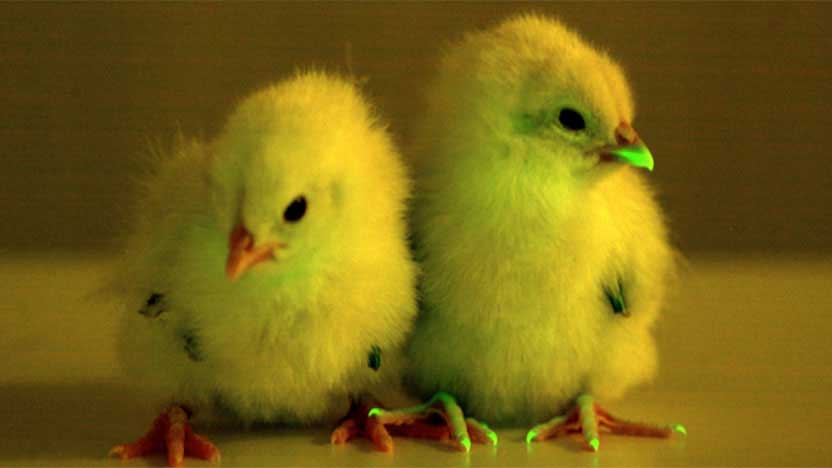United Kingdom – British scientists from Cambridge and the University of Edinburgh’s Roslin have been working with genetically modified chickens in order to fight influenza, the responsible of recent chicken shortage and the devastation of the United States poultry and egg industries. The results are encouraging.
As stated in a report made by Reuters, UK government has backed a study which main objective is to avoid an outbreak like the one that caused the death of 48 million chickens and turkeys since December in the US. Another outbreak is expected to come this Fall.
In the experiment, researchers are trying to control bird flu through genetic engineering by blocking initial infections in egg-laying and preventing birds from transmitting the virus. They have also injected a fluorescent protein to the chickens in order to identify the ones that have been genetically modified. The protein makes its beaks and feet glow in the dark.

Save to consume?
Genetically modified organisms (GMO’s) are plants, animals or microorganisms in which the genetic material (DNA) has been altered in a way that does not occur naturally. GMO’s are used in the production of pharmaceutical drugs, experimental medicine, and agriculture.
On 2010, the U.S. Food and Drug Administration (FDA) declared that GMO’s were safe to consume after 20 years conducting a review of GMO salmon. Scientists also believe that GMO could help fight disease and increase production.
However, health regulators around the world has not yet approved any GMO’s for human consumption due to the risks they can represent to the environment and food safety. In fact, since 1990, the European Union addressed the implementation of strict GMO labeling laws.
The importance
Bird flu is a real problem and has the UK and several global industries concerned about its consequences since a decade ago.
The main reason is that people could get infected by bird flu if they come in contact with it, generating a mutated version of the virus that could lead to a pandemic. Fortunately, no humans were infected in the recent outbreak in the US, although some cases have been identified in Asia.
“The public is obviously aware of these outbreaks when they’re reported and wondering why there’s not more done to control it,” said Laurence Tiley, a senior lecturer in molecular virology at the University of Cambridge, who is involved in the experiments.
The experiment is conducted to develop a more flu-resistant bird which could help farms avoid infections. Until now, they have taken measures like banning visitors and disinfecting vehicle wheels to control the spread.
Source: Reuters
